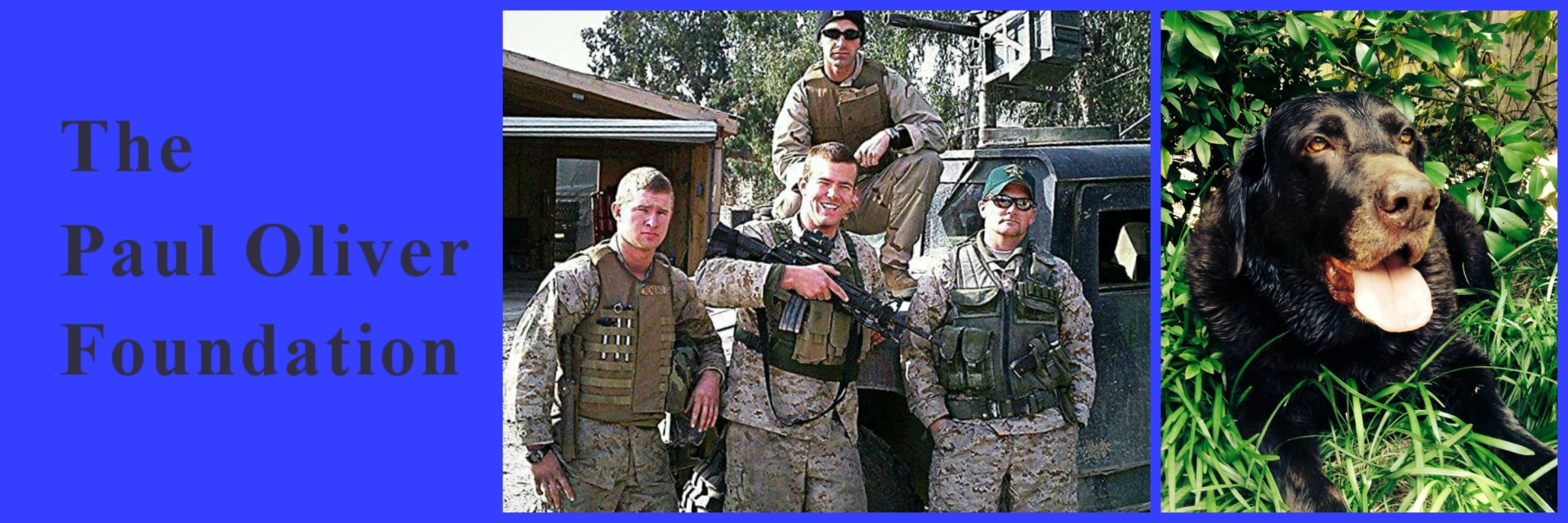Resources on Service Animals
Lin, C.J. (August, 2013). The Goal: Understanding How Furry Friends Ease PTSD, TBI. Stars and Stripes Magazine. Retrieved from: http://www.stripes.com/news/the-goal-understanding-how-furry-friends-ease-ptsd-tbi-1.237004.
Foreman, Kathy, Crosson, Cynthia. (2012). Canines for Combat Veterans: The National Education for Assistance Dog Services. The United States Army Medical Department Journal, p.61-62. Retrieved From: http://www.cs.amedd.army.mil/FileDownloadpublic.aspx?docid=73e8d2aa-1a2a-467d-b6e3-e73652da8622.
Krol, William. (2012). Training the Combat and Operational Stress Control Dog: An Innovative Modality for Behavioral Health. The United States Medical Department Journal, p.46-50. Retrieved from: http://www.cs.amedd.army.mil/FileDownloadpublic.aspx?docid=73e8d2aa-1a2a-467d-b6e3-e73652da8622.
Colin, Chris. (2012). How Dogs Can Help Veterans Overcome PTSD. Smithsonian Magazine. Retrieved From: http://www.smithsonianmag.com/science-nature/how-dogs-can-help-veterans-overcome-ptsd-137582968/?no-ist.
Watkins, Kathleen L. (2012). Policy Initiatives for the Use of Canines in Army Medicine. The United States Army Medical Department Journal, p.8-11. Retrieved From: http://www.cs.amedd.army.mil/FileDownloadpublic.aspx?docid=73e8d2aa-1a2a-467d-b6e3-e73652da8622.
U.S. Department of Justice: Civil Rights Division. (2011). ADA Requirements: Service Animals. Retrieved from http://www.ada.gov/service_animals_2010.pdf.
U.S. Department of Veterans Affairs: PTSD: National Center for PTSD. (2014). Dogs and PTSD. Retrieved from http://www.ptsd.va.gov/public/treatment/cope/dogs_and_ptsd.asp.
Beck, Christine E. (2012). The Effects of Animal-Assisted Therapy on Wounded Warriors in an Occupational Therapy Life Skills Program. The United States Army Medical Department Journal, p. 38-45. Retrieved from: http://www.cs.amedd.army.mil/FileDownloadpublic.aspx?docid=73e8d2aa-1a2a-467d-b6e3-e73652da8622.
Resources on Traumatic Brain Injury (TBI) and Post Traumatic Stress Disorder (PTSD)
National Association of State Head Injury Administrations. (n.d.). TBI & PTSD Quick Facts. Retrieved from: http://www.nashia.org/docs/quick_white.pdf.
U.S. Department of Veteran Affairs: PTSD: National Center for PTSD. (2014). About Face: How This Site Works.Retrieved from: http://www.ptsd.va.gov/apps/AboutFace/info/about-us.htm
Millham, Matt. (2014). Long-Term Effects of TBI Similar No Matter What the Cause, Study Says. Stars and Stripes. June 14, 2014. Retrieved From: http://www.stripes.com/news/special-reports/traumatic-brain-injury/long-term-effects-of-tbi-similar-no-matter-what-the-cause-study-says-1.289368.
Bagalman, Erin. (2013). Mental Disorders Among OEF/OIF Veterans Using VA Health Care: Facts and Figures. Congressional Research Service. Retrieved From: http://fas.org/sgp/crs/misc/R41921.pdf.
Bicknell, Michael. (2011). Veteran’s Odyssey: Combat Trauma and the Long Road to Treatment (Report from VFW Post 6974). (Master of Arts Thesis). Retrieved from the University of Texas Digital Repository. Retrieved from: http://repositories.lib.utexas.edu/handle/2152/ETD-UT-2011-08-4219.
U.S. Department of Health and Human Services: Centers for Disease Control and Prevention. (2010). Traumatic Brain Injury in the United States: Emergency Department Visits, Hospitalizations, and Deaths 2002-2006. National Center for Injury Prevention and Control. Retrieved from: http://www.cdc.gov/traumaticbraininjury/pdf/blue_book.pdf.

 Veteran’s Crisis Hotline
Veteran’s Crisis Hotline
This is a free service available 24/7 for veterans and their families. Services available include phone, text, and online chat.
Resources that provides military-specific information and resources on traumatic brain injury to veterans, service members, and their families.
FRAGO is a reintegration solution for veterans that uses “service before self” to revitalize the community. Many veterans are not homeless, but are un- and under-employed. Some have a deep desire to be independent business owners. FRAGO closes the digital talent gap and eases career transition for military veterans, through technical design and cross-functional business training.

